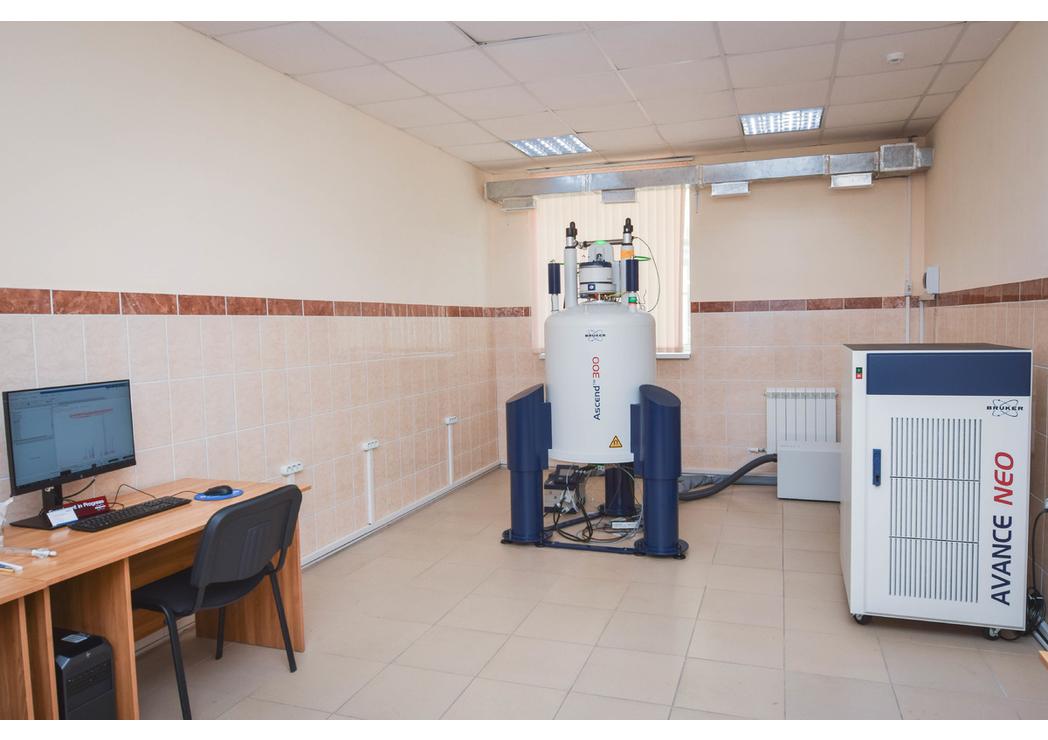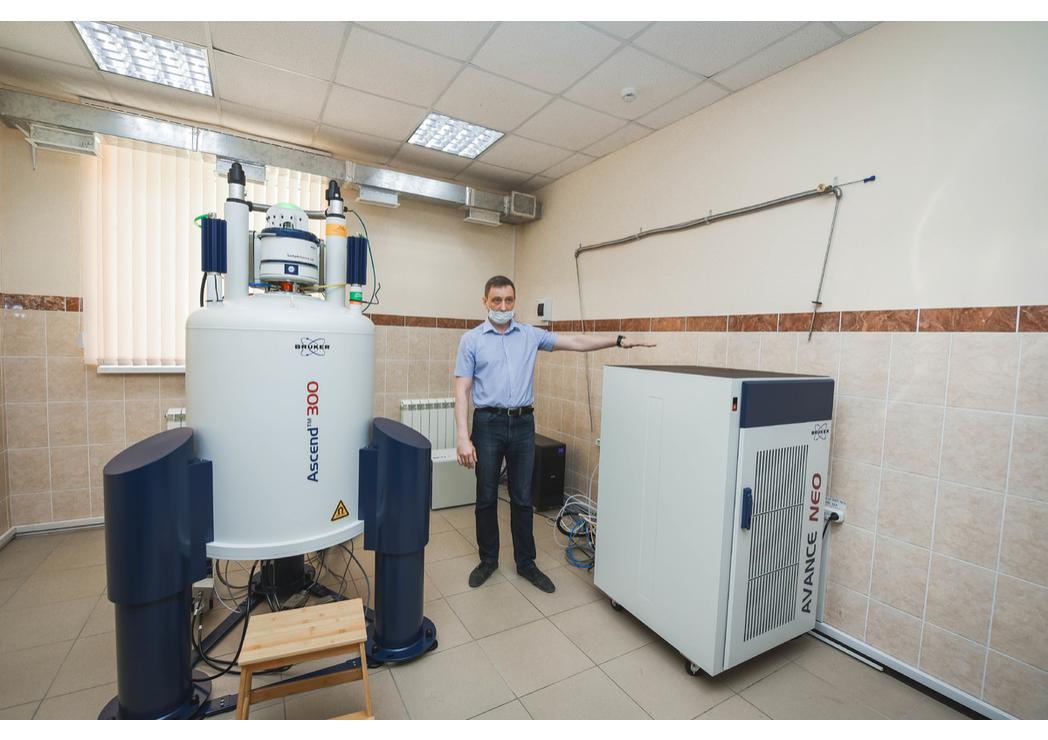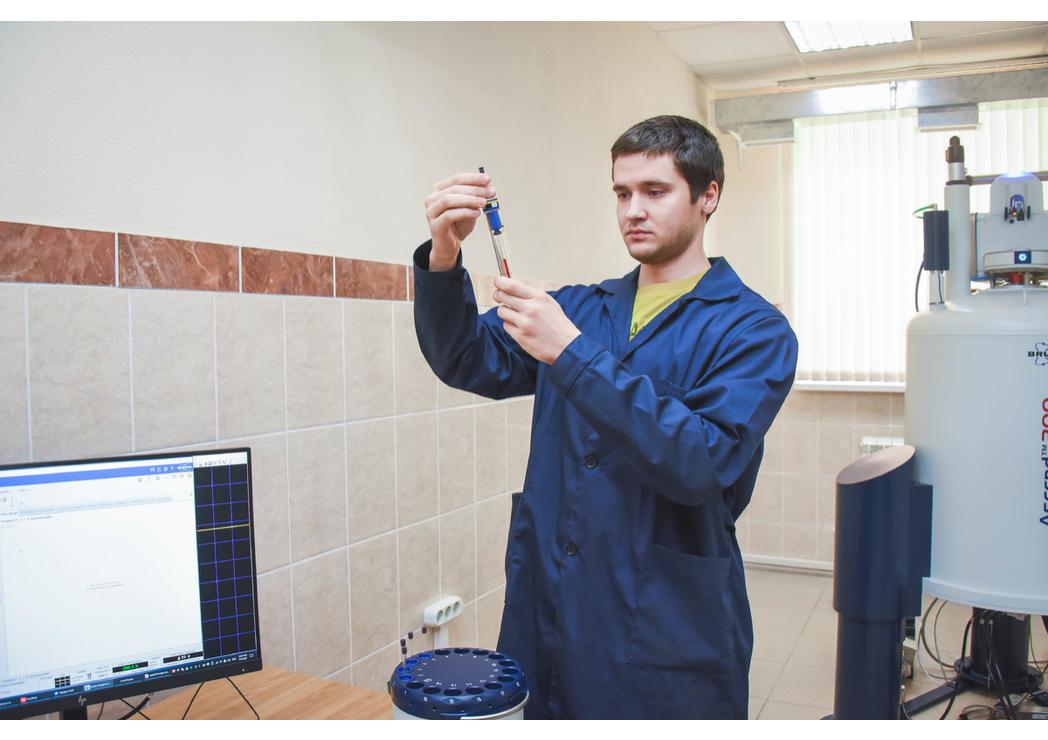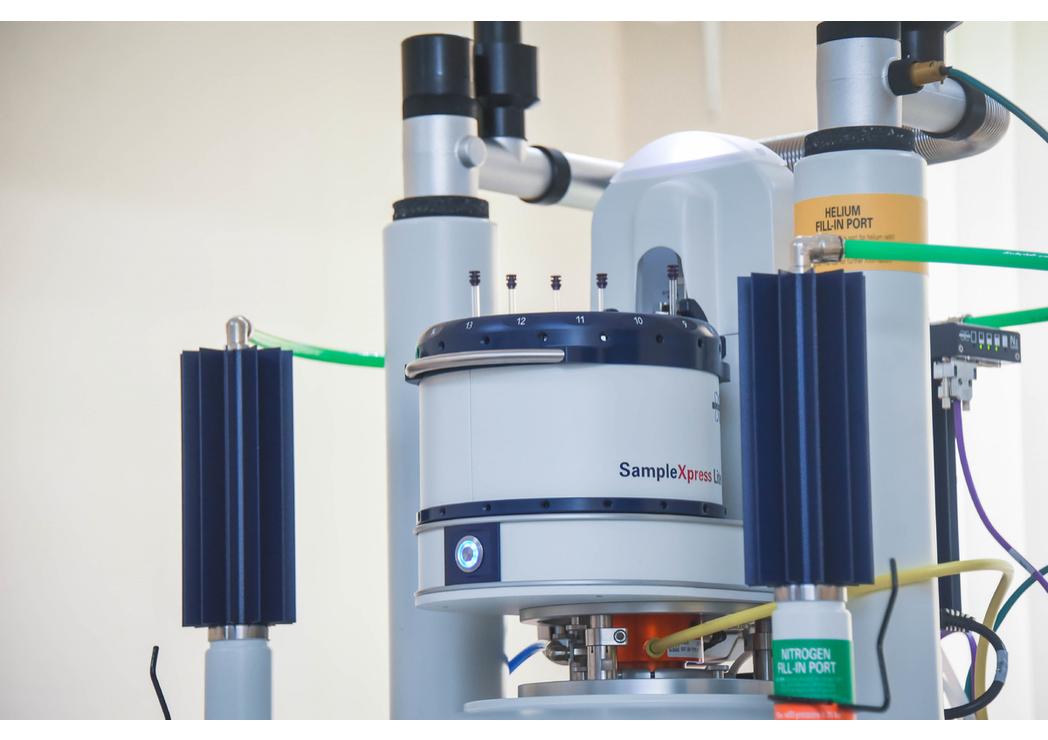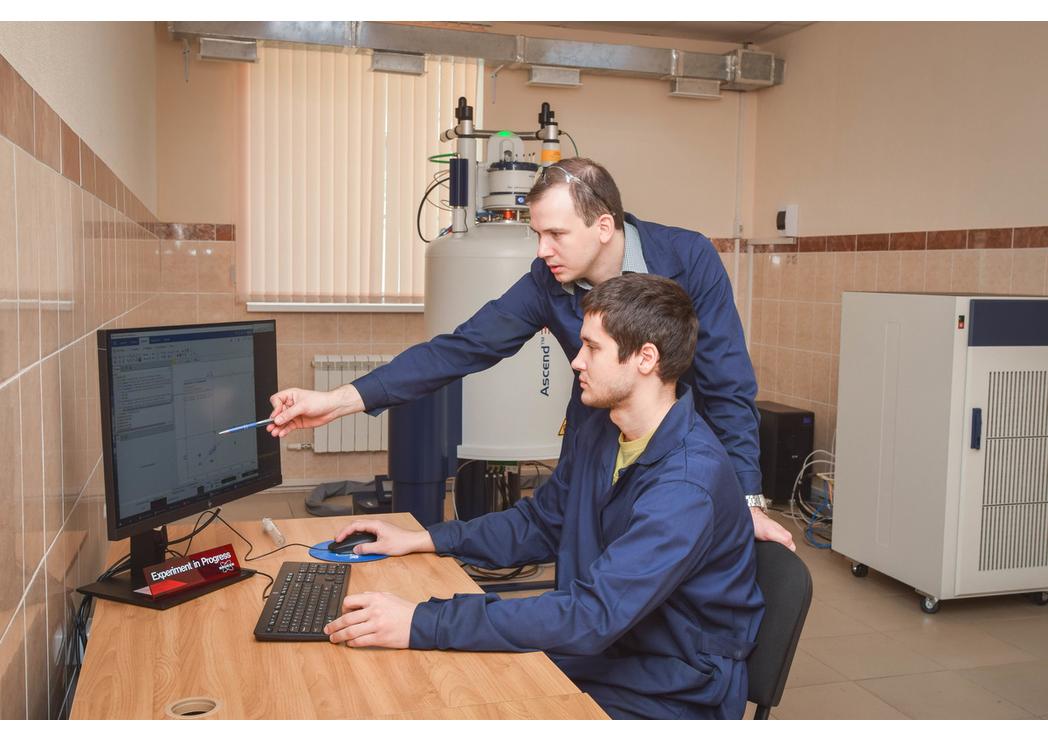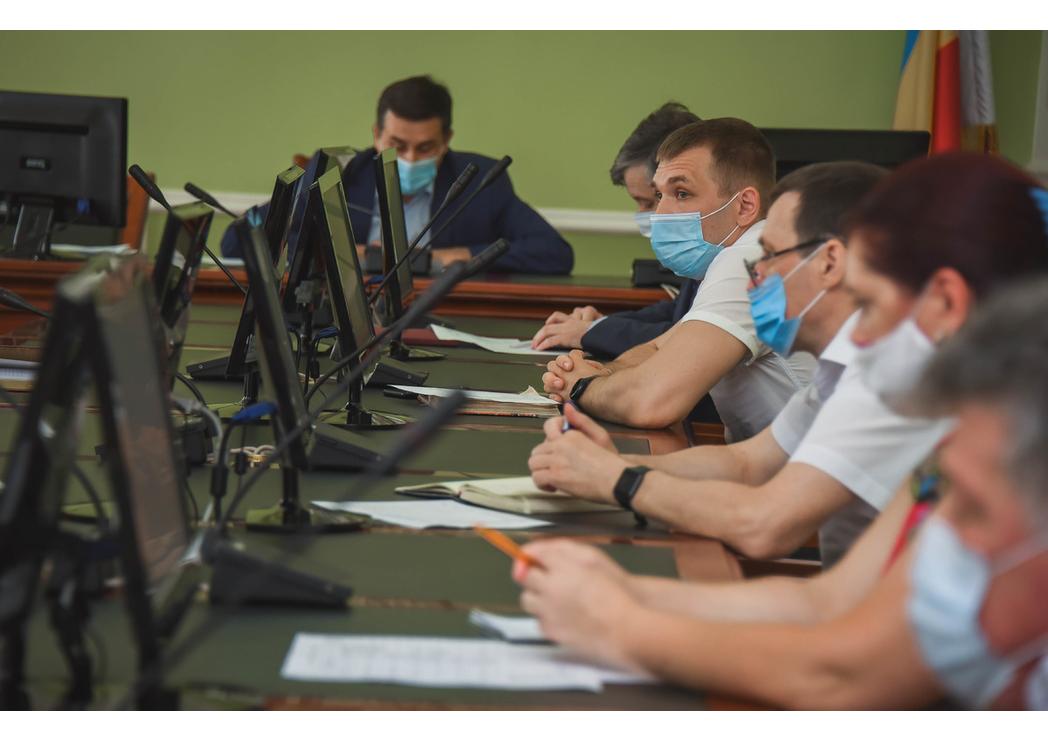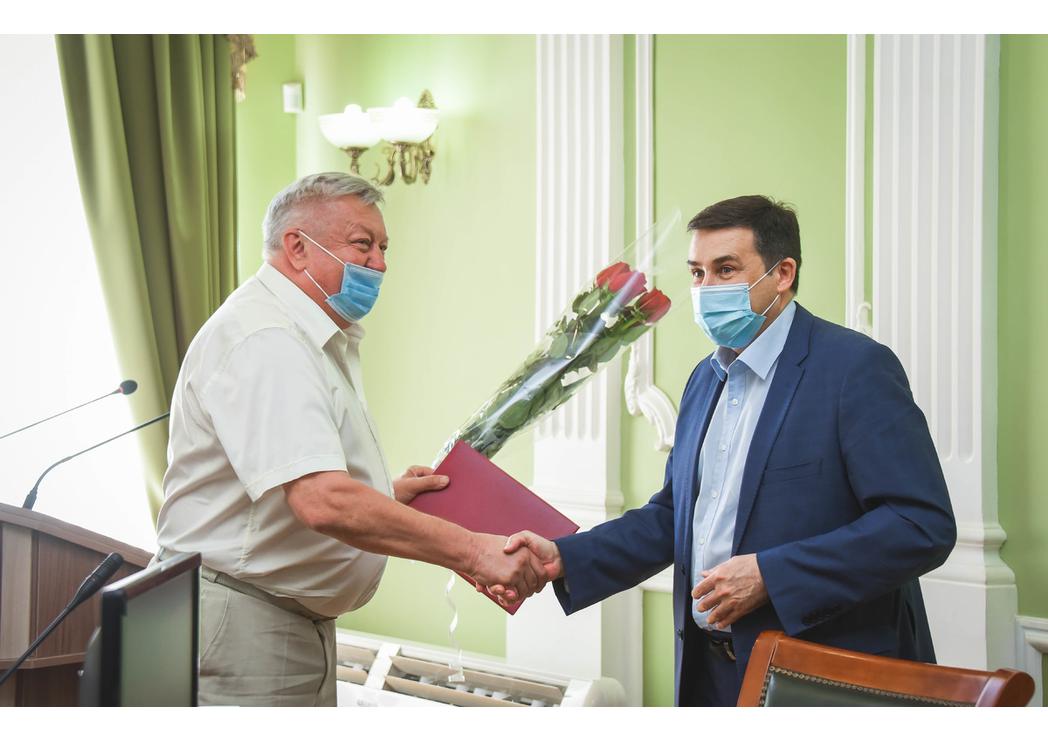The day of July 6 at the university was devoted to the development of the scientific and innovative potential of the university. The directors of the Research Institute were invited to a meeting with the Rector of YURSPU (NPI) Yu.I. Razorenov and Vice-Rector for Innovation O.A. Kravchenko to summarize the results of activities for the first half of 2020, outline development prospects and make proposals for the development of scientific and innovative activities. The meeting was crowned by an excursion to the Center for Collective Use, where a new laboratory was presented to scientists.
In a short report, O.A. Kravchenko touched upon the activities of all research institutes, noting that the largest amount of work during the reporting period was carried out by the Research Institute "Nanotechnology and New Materials", the Research Institute of Energy (mainly within the framework of the state defense order) and the Research Institute of Electromechanics (within the framework of the Decree of the Government of the Russian Federation No. 218 "On measures of state support development of cooperation between Russian educational institutions of higher education, state scientific institutions and organizations implementing complex projects to create high-tech production"). The rector of YURGPU (NPI) Yu.I. Razorenov expressed the opinion that the amount of funds that the university has already attracted is not bad, but not enough for the university.
Another question to which the rector drew the attention of the audience concerned the Strategic Academic Leadership Program developed and presented by the Ministry of Science and Higher Education of the Russian Federation, which was based on the principles of integration and cooperation of scientific and educational organizations, as well as the principles of competition and openness. In order to be able to participate in the program initiated by the Ministry, it is necessary to develop a university development program, and active work in this direction is already underway.
– I would like the directors of the Research Institute to be involved in this work, make their suggestions and share their opinions, - Yuri Ivanovich addressed the audience.
At the end of the meeting, the rector, on behalf of all polytechnics, congratulated Valery Petrovich Papirnyak, Director of the Research Institute "Transport Systems and Complexes", on his anniversary. Warm words were addressed to the hero of the occasion, the hero of the day was awarded the award "Honorary Worker of the YURSPU (NPI)".
The scientists who moved to the Center for Collective Use were able to see a new laboratory, the meaning-forming core of which was the NMR spectrometer.
The use of nuclear magnetic resonance spectroscopy in organic chemistry and materials science has been a routine, standard method for many years, thanks to which it is possible to successfully study the structure and properties of substances.
The nuclear magnetic resonance (NMR) method is based on the interaction of an external magnetic field with nuclei having a magnetic moment, which, when exposed to them by a radio pulse of a certain frequency, pass to another energy level, and when the pulse is switched off, they return to their original state, emitting electromagnetic radiation at the same time. As a result, an image of damped resonant oscillations is obtained, in which signals from all resonating nuclei are mixed (the most important nuclei for NMR are protons, there are most of them in nature, and they have very high sensitivity).
Until 2014, our chemists were forced to record spectra in Rostov-on-Don, on the basis of the SFU, and since 2014 – in Moscow, on the basis of the Institute of Organic Chemistry of the Russian Academy of Sciences. On average, 50 samples per week were sent on a "journey", and the result could be expected no earlier than in three weeks.
- In recent years, a serious scientific team has been formed, headed by Viktor Mikhailovich Chernyshev, into which a large number of young researchers have joined, - Yu.I. Razorenov, Rector of YURGPU (NPI), commented on an important event. - They need a modern material and technical base in order to work productively. The active participation of this group of scientists in grants from the Ministry of Science and Higher Education, their unique publications in top-10 world-class journals, made it possible to obtain from the Ministry of Education and Science the necessary resource for the purchase of a nuclear magnetic resonance spectrometer.
The head of the laboratory V.M. Chernyshev called the appearance of such equipment at the university an extremely joyful event. "We have been striving for this for the last twenty years! – Viktor Mikhailovich shared his emotions. - Being engaged in organic chemistry, we did not have an NMR spectrometer - a device that gives us tremendous opportunities. There are about 150 such devices in Russia. As far as I know, this is the fourth such spectrometer in the Rostov Region (three at the Southern Federal University). The NMR spectrometer is equipped with a new generation electronic system, which allows significantly speeding up experiments to establish the structure of substances. A 300 MHz magnet is quite sufficient for most experiments related to organic synthesis. Now we will be able to conduct studies of unstable substances that cannot be transported, study reactions directly inside the device, in an ampoule of NMR, see and recognize the structure of key intermediates – substances that do not live long and that cannot be isolated by other methods.
Young employees, including graduate students, will definitely work in the laboratory.
- We invite scientific collectives of the South of Russia and other organizations to cooperate, - says V.M. Chernyshev. - The spectrometer is open to students, postgraduates, research teams. We are also ready to cooperate on a non-commercial basis, within the framework of scientific research. We welcome joint scientific research and will be very glad to see employees of other organizations in our NMR laboratory!
Konstantin Shepelenko, a graduate of the Southern Federal University, has been working under Viktor Mikhailovich for a year, who also defended his PhD thesis there. "Our team is glad that we have such a device," Konstantin expresses the general opinion. - Now we can work more efficiently, produce scientific articles faster. I hope that our team will grow as well."

